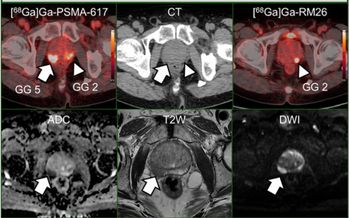
Report from WCC: MRI can be safe in patients with pacemakers
MRI performed at an unlimited specific absorption rate is safe in patients with some permanent pacemakers or implantable cardioverter/defibrillator (ICD) systems, as long as precautions are taken, according to a study from Israel.
MRI performed at an unlimited specific absorption rate is safe in patients with some permanent pacemakers or implantable cardioverter/defibrillator (ICD) systems, as long as precautions are taken, according to a study from Israel.
The conventional wisdom held that pacemakers were considered an absolute contraindication for MRI, mainly due to the presence of ferromagnetic components and the potential for electromagnetic interference. These devices are now smaller and have improved electromechanical interference protection, however, and these improvements have led practitioners to rethink the ban.
"Consultation with a qualified cardiologist or electrophysiologist is strongly advised so that patients can be adequately screened and correctable physiologic abnormalities, such as hypoxia and electrolyte abnormalities, can be addressed prior to MRI," said Dr. Ariel Roguin, senior lecturer in the cardiology department at Rambam Medical Center in Haifa, Israel, at the World Congress of Cardiology in Barcelona.
Special attention should be taken when the patient is pacemaker-dependent, and the clinician must confirm that MRI is crucial to the management of the patient. The patient or a relative must sign a consent form that explains potential adverse reactions.
A physician or technician who is knowledgeable in device therapy and programming should be present throughout the examination, Roguin said. During the scan, high-quality ECG monitoring equipment, direct video visualization, audio communication, pulse oximetry and breathing monitoring, and resuscitation devices are essential.
Roguin presented details about 10 patients who had been scanned at Haifa. Six had pacemakers, and four had ICDs. In six patients, the brain was being investigated, while three underwent scans of the spine and another had a knee scan. Two were pacemaker-dependent.
"During MRI, no device movement was felt by the patients and no episodes of inappropriate inhibition or rapid activation of pacing were observed," he said. "At interrogation, there were no significant differences between device parameters. Image quality was not influenced by the presence of the device."
Newsletter
Stay at the forefront of radiology with the Diagnostic Imaging newsletter, delivering the latest news, clinical insights, and imaging advancements for today’s radiologists.















